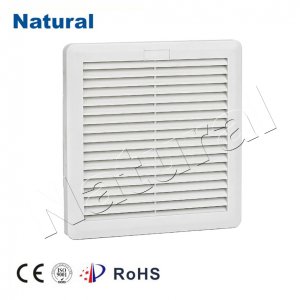In the realm of electrical engineering and automation, ensuring the reliability and longevity of equipment is paramount. Electrical cabinets, often housing sensitive electronic components, are vital in this regard. These cabinets protect equipment from harsh environmental conditions, such as dust, dirt, and moisture, which can compromise their functionality. To address these challenges, engineers have turned to electrical cabinet filters, which have proven to be indispensable in maintaining the integrity of electrical systems.

Understanding Electrical Cabinet Filters Electrical cabinet filters, also known as cabinet air filters or enclosure filters, are specialized devices designed to improve the environment within electrical cabinets. These filters are commonly used in various industries, including manufacturing, telecommunications, and renewable energy, where electrical equipment is frequently exposed to adverse conditions. The primary purpose of these filters is to maintain a clean and controlled environment within the cabinet, free from contaminants that could damage or hinder the performance of sensitive components. The Importance of Filtration Dust and Particulate Contaminants: Dust and particulate matter are ubiquitous, and they can easily find their way into electrical cabinets. When these particles accumulate on electronic components, they can obstruct airflow, cause overheating, and lead to malfunctions or even failures. Electrical cabinet filters are designed to trap these particles, ensuring a clean internal environment. Moisture Control: Electrical cabinets are also susceptible to moisture infiltration, which can cause corrosion and short-circuits. Filters equipped with moisture-absorbing capabilities can help maintain a dry environment within the cabinet, safeguarding sensitive electronics from harm. Temperature Regulation: Effective filtration can aid in temperature control within the cabinet. By maintaining a consistent temperature, electrical components are less likely to experience thermal stress, ensuring their longevity and reliable performance. Types of Electrical Cabinet Filters Several types of filters are available for electrical cabinets, each designed to address specific environmental challenges: Dust Filters: These filters are constructed with fine mesh materials that capture airborne dust particles, preventing them from settling on sensitive components. Moisture-Resistant Filters: These filters incorporate materials that absorb moisture, helping to keep the humidity within the cabinet at an optimal level. Active Filters: Some advanced filters are equipped with fans or other active components that not only filter the air but also circulate it, aiding in temperature control. EMI/RFI Filters: For cabinets housing equipment susceptible to electromagnetic interference (EMI) or radio frequency interference (RFI), specialized filters are available to block these unwanted signals. Benefits of Electrical Cabinet Filters The incorporation of electrical cabinet filters yields several significant benefits: Improved Equipment Reliability: Filters help extend the lifespan of electrical components by preventing damage from dust, moisture, and temperature fluctuations. Reduced Maintenance Costs: Regular maintenance and cleaning of components can be time-consuming and costly. Filters reduce the need for frequent maintenance, resulting in cost savings over time. Enhanced Performance: With a clean and controlled environment, equipment can operate at peak performance, ensuring optimal efficiency and productivity. Compliance with Standards: In some industries, regulatory standards mandate the use of cabinet filters to protect sensitive electronics. Using these filters ensures compliance with these standards. Conclusion Electrical cabinet filters are invaluable assets in the world of electrical engineering and automation. Their ability to protect sensitive electronic components from dust, moisture, and temperature fluctuations significantly contributes to the reliability and longevity of equipment. Engineers and industries alike continue to rely on these filters to safeguard their investments and ensure the seamless operation of critical systems. As technology continues to advance, so too will the role of electrical cabinet filters in supporting the future of electrical engineering and automation.